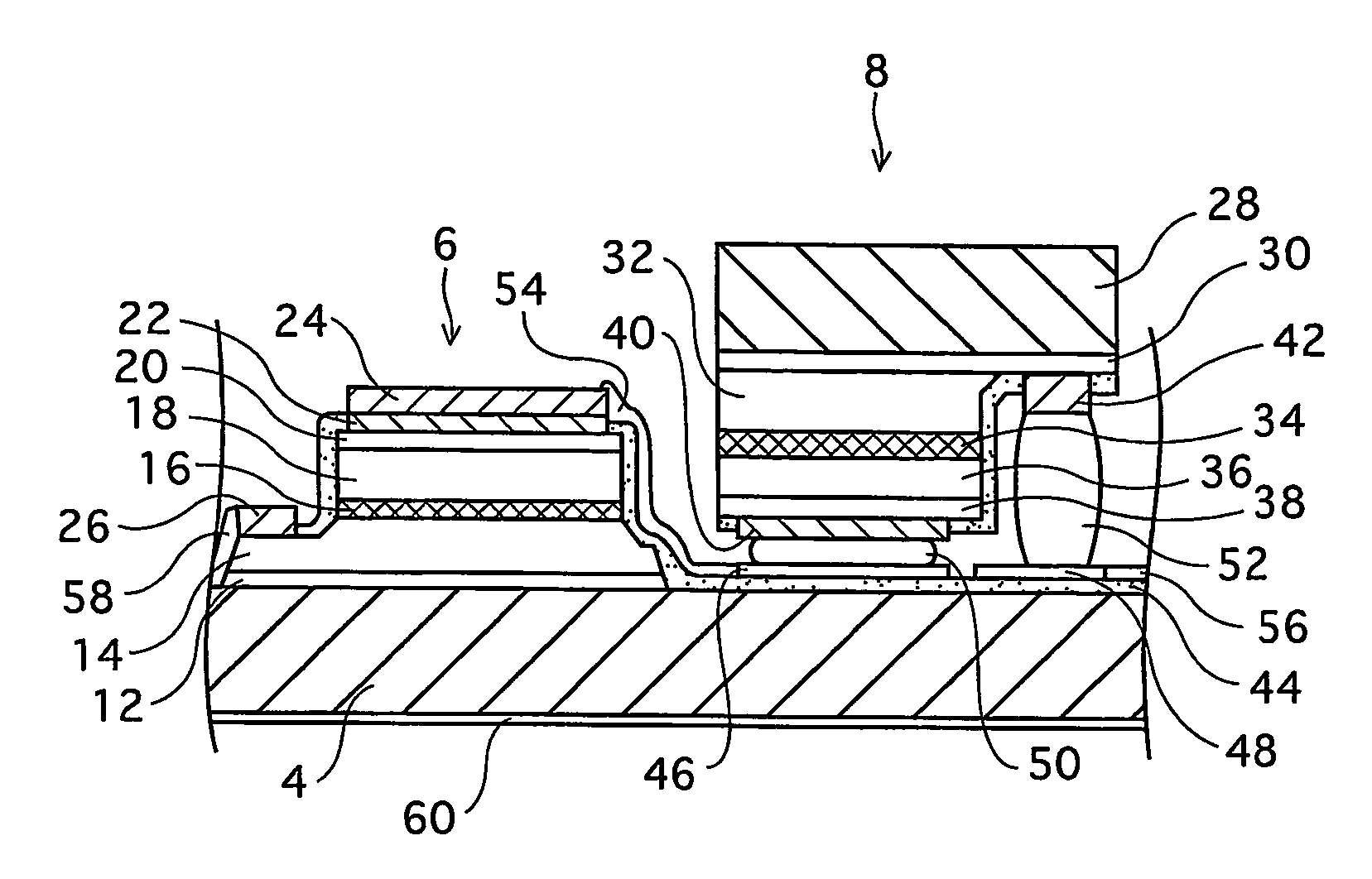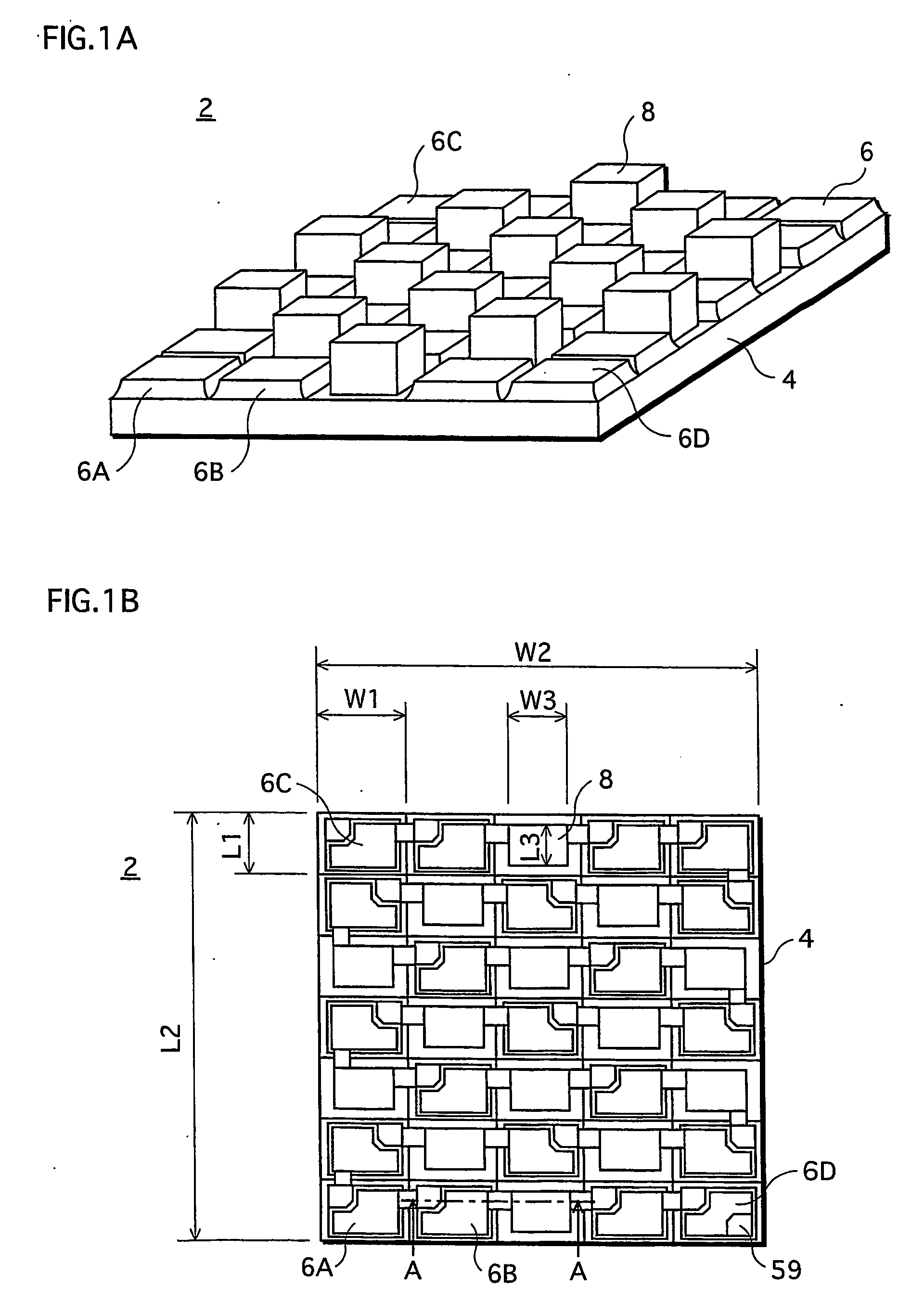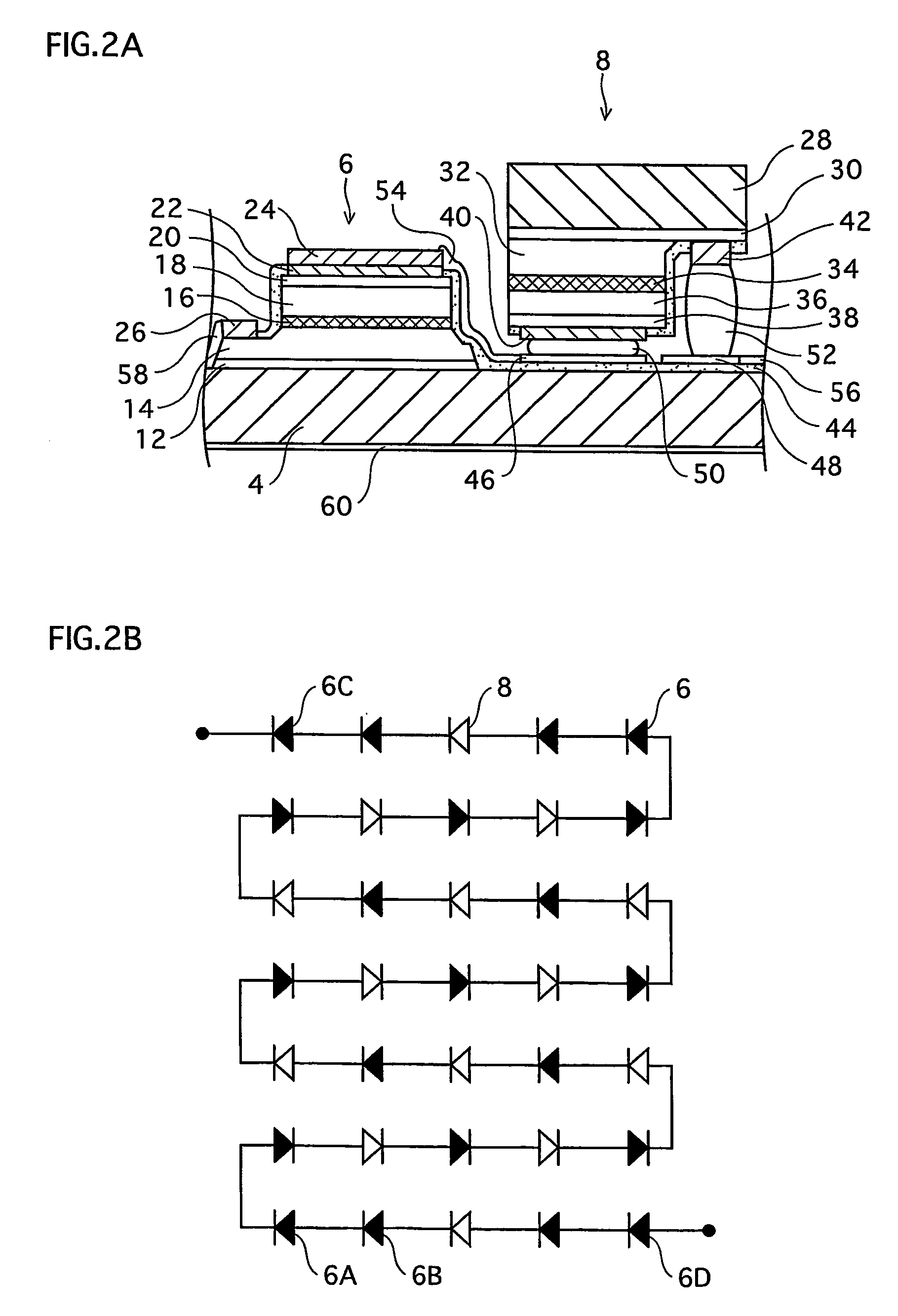Semiconductor light emitting device, light emitting module and lighting apparatus
- Summary
- Abstract
- Description
- Claims
- Application Information
AI Technical Summary
Benefits of technology
Problems solved by technology
Method used
Image
Examples
Embodiment Construction
[0039] The following describes an embodiment of the present invention with reference to the attached drawings.
[0040]FIG. 1A is an external perspective view that illustrates a construction of an LED array chip 2 which is one type of a semiconductor light emitting device. FIG. 1B is a plan view illustrating the LED array chip 2. FIG. 1A mainly shows how blue LEDs 6 and red LEDs 8 are arranged, and therefore does not show minute depressions and protrusions on surfaces of the blue and red LEDs 6 and 8 in the LED array chip 2. It should be noted that a reduced scale for each constituent is not uniform in any of the drawings including FIGS. 1A and 1B.
[0041] As shown in FIGS. 1A and 1B, the LED array chip 2 is formed in such a manner that light emitting elements (LEDs 6 and 8) are arranged in a matrix of N rows and M columns (in the present embodiment, a matrix of seven rows and five columns, in total, 35 LEDs) on a non-doped (highly resistive) SiC substrate 4 which is a semiconductor su...
PUM
 Login to View More
Login to View More Abstract
Description
Claims
Application Information
 Login to View More
Login to View More - R&D
- Intellectual Property
- Life Sciences
- Materials
- Tech Scout
- Unparalleled Data Quality
- Higher Quality Content
- 60% Fewer Hallucinations
Browse by: Latest US Patents, China's latest patents, Technical Efficacy Thesaurus, Application Domain, Technology Topic, Popular Technical Reports.
© 2025 PatSnap. All rights reserved.Legal|Privacy policy|Modern Slavery Act Transparency Statement|Sitemap|About US| Contact US: help@patsnap.com



